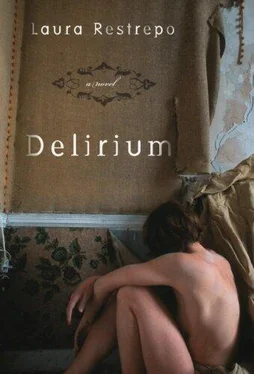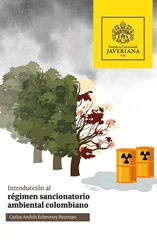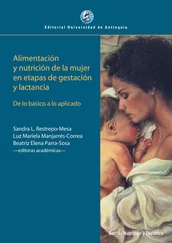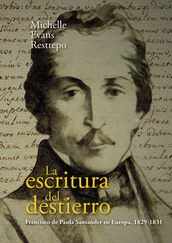Portulinus, friendly and hospitable so long as he wasn’t muddled — and anyway why not welcome a handsome blond boy who has arrived exhausted after traveling by foot from Anapoima? — asked whether his daughter had invited the visitor in, whether she had at least offered him some lemonade, but no, the boy wouldn’t accept anything, he’d just announced that if the piano teacher wasn’t there, he’d return the next day. That settled, the family sat down at the table with Nicasio, the steward with the perpetual flu, Nicasio’s wife, and a pair of salesmen from Sasaima, and were served the pork roast with golden creole potatoes and steamed vegetables. Portulinus was clearheaded and charming and questioned those present about the state of his or her health, and in the middle of the boisterous conversation, the girl Eugenia said, though no one was listening, that the blond boy had brought some lead soldiers in his knapsack. He let me play with them while he was waiting for you to come, Eugenia told them, but they didn’t hear her, and we set them up in three rows in the hall and he whistled military marches and said that we had staged a great parade; he also told me that the soldiers were just a few he’d brought with him since they were his favorites, but that he had left many more at home in Anapoima.

WHO’S OUTSIDE, MOTHER? asks Agustina, Who’s outside, Aminta? She’s talking about her first house, the one from before the family moved north, the white-and-green house in Teusaquillo, on Caracas Avenue, and there’s someone outside and they won’t tell her who it is. The school bus comes to pick me up early in the morning, someone blows the horn, and Aunt Sofi laughs and says, That poor bus moos like a sick cow. Where are my notebooks, Aminta, where are my pencils? But they won’t let me go, they refuse to open the gate, they look out the peephole, the day had to come when even Aminta was scared of something. Mr. Leper, stand aside and let the girl by! shouts Aunt Sofi, who doesn’t live with us yet but who’s the only one who knows how to fix things, Stand aside, please, Mr. Leper, Señor. Let me go, Aunt Sofi, I’m on my way to school, but she hugs me tight against her, covering my head with her white orlon sweater, the one with fake pearls instead of buttons, and we hurry out into the street like that, so that I can’t see. So that I can’t see what? So that I can’t see who? but Aunt Sofi isn’t here anymore to answer me.
So that you don’t see the leper man, says Aminta, Who is he? A poor sick man. And why can’t I see him? Your mother says you shouldn’t see him, because you’ll be scared. He’s horrifying, the poor thing, deathly white, with rotting skin and cemetery breath. My head has managed to escape from Aunt Sofi’s sweater and my eyes see him, a little, or they dream of him at night, he’s a bundle of dirty rags and he’s holding a piece of cardboard in his hand, a sign. The writing is clumsy, like that of a child who hasn’t learned to write yet, the writing of a poor person: my mother says the poor are illiterate. That’s dirty, child, What’s dirty? I already know the answer, everything that comes from the street is dirty. But I want to see it, I have to see it, the leper has written something for me to read. What does it say, Aminta? What does it say, Mother? Will someone read me what it says on his dirty piece of cardboard? That we should give him money because he’s from Agua de Dios, they answer, but I don’t believe them. What’s Agua de Dios? Hurry up, Agustina, the bus will leave without you, Let it leave, I want to know what Agua de Dios is, Agua de Dios is the leprosarium where they keep people with leprosy locked up so they don’t come to the city to infect us. Then why is he here, why has he come to stand outside my house, not my house now but the one from before, did he escape from Agua de Dios to come looking for me?
Now I know why my father bars the doors at night; it’s so that the Agua de Dios contagion doesn’t creep in with its stinking white flesh that falls off in pieces. Tell me, Aminta, what is he like, what does he smell like, who says he has death written on his face? I want to know what he sees with his empty eye sockets, do his eyes turn to wax and melt? Aminta says his eyes turn to pus, Be quiet, stupid, don’t say that! Mommy, Aminta is scaring me about the leper, you’ll be sent away for lying, do you hear me, Aminta? my mommy said she’d fire you from your job if you kept scaring the children. Now I don’t have to ask anyone, because I know: I have the Power and I have the Knowledge, but I still don’t have the Word. They think I don’t understand but I do; I know the face of the horrible thing waiting in the dark, outside the door, quiet in the rain because it escaped from where it was locked up, the thing that stares with vacant eyes into our lit-up house. Turn off the lights, Aminta! but she pays no attention to me. This is our house from before, the white-and-green one on Caracas Avenue where my two brothers and I were born, I’m talking about the old days. After my father closes the shutters, I go around covering up all the holes in them with my finger, one by one, because my mother says that what happens in families is private, that no one should go around sticking their noses into other people’s business, that dirty laundry should be aired in private.
When faced with the Leper my powers are small and flicker out like a dying flame that hardly sheds any light anymore. Does he know he’ll be victorious in the end? Does he know that one day my father will go away and won’t be here to lock the doors? When we’re abandoned, the Leper will triumph, Oh, Father, take my hand and let’s go lock the doors, because if he’s escaped from Agua de Dios it’s because he already knows. Mr. Leper, stand aside and let the girl by! I don’t like it, Aminta, I don’t like it when Aunt Sofi shouts that word so loud, that word girl , because that’s me, and if he learns my name he’ll infect me, he’ll make my name his own and crawl inside of me, he’ll burrow deep in my head and make his cave there, in a nest of panic. Deep in my head there lives a panic called Leper, called Leprosarium, called Agua de Dios, that has the power to change its name whenever it wants. Sometimes, when I speak in Tongues, my panic is called the Hand of My Father, and as I grow up I realize that there are other threats.
The little holes in my house’s shutters are round, splintered around the edges, like eyes with eyelashes on the wood’s green face. What are those little holes, Mother? What are those little holes, Father? They always answer me, They’re nothing, They’re nothing. What they mean is that the shutters have holes in them and that’s all, that’s just the way it is, like people having eyes. One night, while we’re making the rounds with the keys at the ninth hour, my father confesses that it was the April 9 snipers. I understand his words: the April 9 snipers made those holes in our house’s shutters. And how did they make the holes, Father? By shooting, Were they shooting at us? No, at the people, he tells me, but that’s all he’ll say. At what people, Father? People, people, these things happen and there’s no point in discussing it. And were we scared? I ask him then and he answers that I wasn’t born when it happened. The number of harmful beings against whom we must protect ourselves keeps growing, the Agua de Dios lepers, the April 9 snipers, the students with battered and bloody heads, and especially the guerrilla rabble that took Sasaima; and that killed Grandfather Portulinus? Mother, did the rabble kill Grandfather Portulinus? No, Grandfather Portulinus left Grandmother Blanca and returned alone to Germany.
There are other threats that my fear seizes on because it won’t stay still; my fear is a growing beast that must be fed and that swallows everything up, beginning with Ben-Hur’s mother and sister, who become lepers and wander paralyzed by shame, hiding from people’s gazes in an abandoned courtyard where leaves blow in the wind. And also Messala, Ben-Hur’s enemy, who is trampled by chariot wheels and the hooves of galloping horses until he’s the bloodiest wreck imaginable. The theater was almost empty during the matinee and I didn’t dare move in my seat, it was Aminta who took me, I think, because that afternoon my mother was sick, Leave your mother alone, she’s depressed, said Aunt Sofi who didn’t live with us yet, and I see Messala smashed and bloody and those two women with pasty white skin broken out in blisters who cover themselves up with cloaks and rags. Aminta tells me, Don’t be afraid, child, these are things from the Bible. But I’m afraid of the Bible, it seems a terrifying book to me; my mother, who is religious, has put one in each bedroom but at night I shut mine up in the garage, because it’s full of lepers.
Читать дальше













